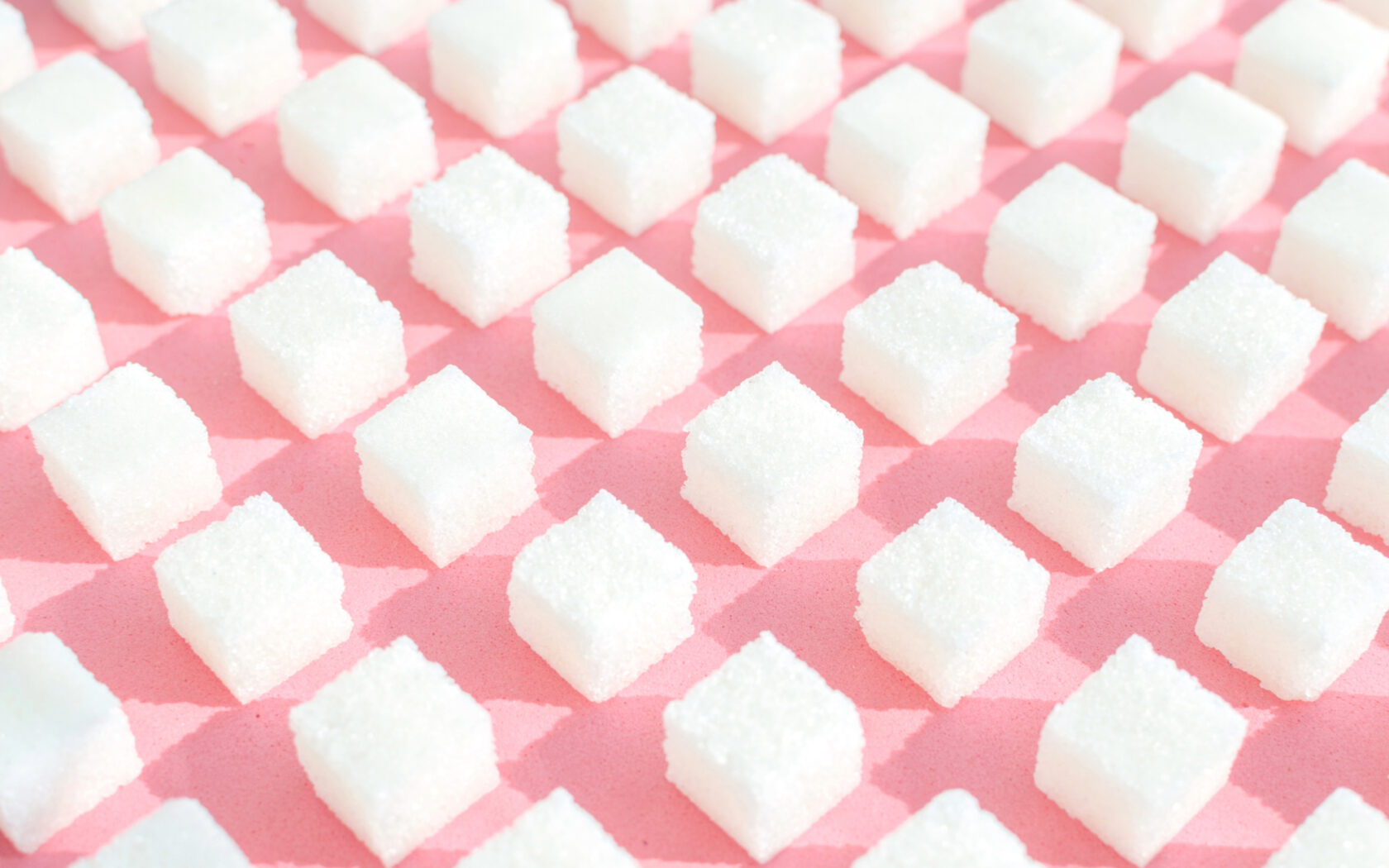Walk into any grocery store today and you'll see a wave of drinks, snacks, and desserts proudly labeled zero sugar, no sugar, or sugar-free. These products are often marketed as healthier choices, especially for people hoping to cut calories or lower their blood sugar.
But the big questions remain: Are artificial sugars good or bad? And what do "no sugar" or "zero sugar" actually mean?
Let's break it all down in a clear, simple way—so you can make choices that truly support your natural wellness.
What Counts as "Artificial Sugar"? A Simple Breakdown
Artificial sugars (also called artificial sweeteners or non-nutritive sweeteners) are artificial ingredients that taste very sweet but offer little to no calories.
Some of the most common include:
- Aspartame (Equal)
- Sucralose (Splenda)
- Saccharin (Sweet'N Low)
- Acesulfame potassium (Ace-K)
These sweeteners can be 200–600 times sweeter than regular sugar, which is why only tiny amounts are needed.
How they differ from natural low-calorie sweeteners
Not all zero-calorie sweeteners are artificial. Some are naturally derived, such as:
- Stevia
- Monk fruit (luo han guo)
And then there are sugar alcohols (erythritol, xylitol, sorbitol)—not technically sugar or alcohol, but somewhere in between. They contain a few calories, but far fewer than traditional sugar.
Understanding these categories matters because the word "sugar" on a label can refer to many very different ingredients.
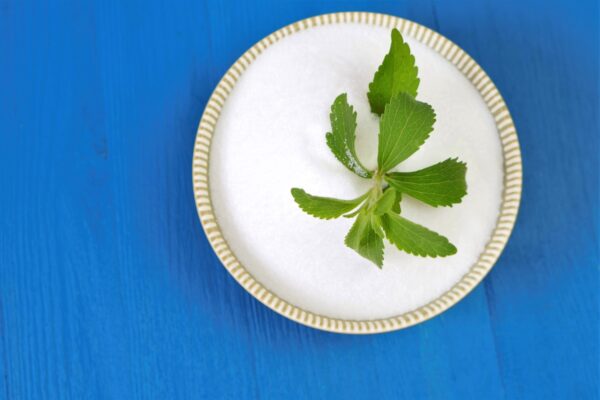
What Do "Zero Sugar" and "No Sugar" Actually Mean on Labels?
Food labels can be confusing, and companies know how to use that to their advantage. Here's what the terms legally mean:
"Zero Sugar" or "Sugar-Free"
- Must contain less than 0.5 grams of sugar per serving.
- But may still contain artificial sugars or natural sweeteners.
- Perfect example: zero-sugar sodas.
"No Added Sugar"
- No sugar was added during processing.
- But the product can still contain naturally occurring sugars, like in fruit juice.
- And sweeteners other than sugar (like stevia or sucralose) may still be added.
"Unsweetened"
- Contains no added sweeteners of any kind—sugar, artificial sugars, or natural ones.
- This is the cleanest label if you're avoiding sweeteners altogether.
The loophole
Because companies use serving sizes creatively, some "zero sugar" foods may contain multiple servings per package—meaning you could be consuming more sugar or sweeteners than the label suggests.
This is why reading ingredient lists is often more helpful than reading claims on the front of a package.
Are Artificial Sugars Good or Bad? What the Science Says
This is the heart of the question—and the answer isn't completely black or white. Artificial sugars have potential benefits and potential downsides. What matters most is how often you use them and your overall wellness goals.
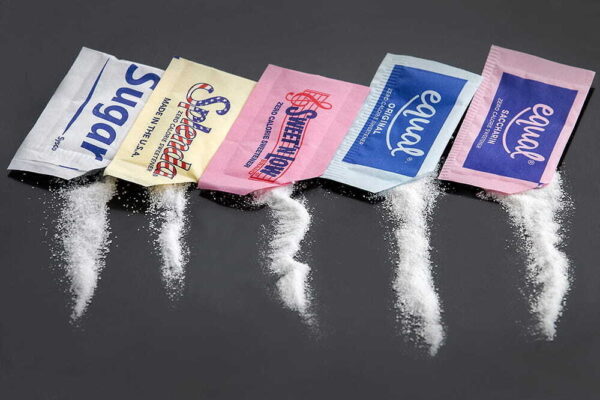
Potential Benefits
1. Support for blood sugar management
Artificial sugars do not raise blood glucose the way regular sugar does. This can be helpful for people with diabetes or those trying to reduce sugar intake.
2. Lower calorie intake
Because they contain little to no calories, they can help people reduce overall calorie consumption—especially when switching from sugary sodas.
3. Dental-friendly
Unlike sugar, artificial sweeteners don't feed oral bacteria, meaning they don't contribute to tooth decay.
Potential Downsides
1. Impact on metabolism and hunger
Some studies suggest artificial sugars may confuse the body's hunger signals. When the brain tastes sweetness without calories, it may trigger cravings, causing you to eat more later.
2. Possible gut microbiome disruptions
Emerging research shows that artificial sweeteners can affect gut bacteria, potentially influencing digestion, immunity, and metabolism. The effects vary between individuals, but this is an important area of ongoing research.
3. Headaches, bloating, or sensitivity
Some people are sensitive to sweeteners like aspartame, sucralose, or sugar alcohols and experience digestive issues or headaches.
4. The "sweetness trap"
Even though artificial sugars are calorie-free, they keep your taste buds trained to crave very sweet flavors. This can make it harder to enjoy naturally sweet foods like fruit or lightly sweetened whole foods.
So… are artificial sugars good or bad?
They're not inherently "bad," but they're not the perfect solution either.
They can be helpful tools for reducing sugar intake, especially during transitions—but relying on them long-term may not support a balanced, nature-rooted lifestyle.
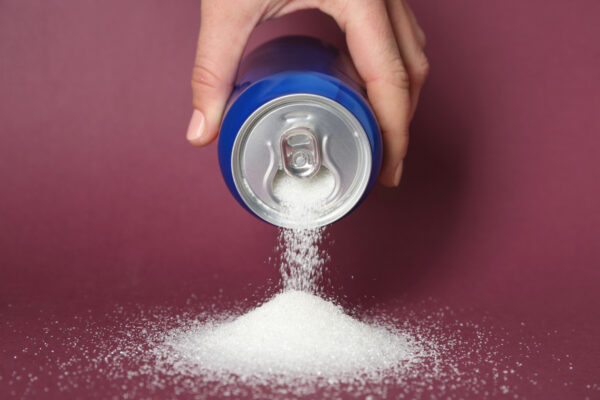
Natural Alternatives: Are They Better?
Natural non-caloric sweeteners like stevia or monk fruit often feel like a better choice because they come from plants. But they, too, undergo processing before reaching store shelves.
Pros of natural alternatives
- No impact on blood sugar
- No artificial chemicals
- Taste closer to natural sweetness
- Often easier on digestion than artificial sugars
Cons
- Some people find stevia bitter
- Monk fruit is still expensive and sometimes mixed with fillers
- Overuse can still keep cravings active
Sugar alcohols
Ingredients like erythritol or xylitol are naturally derived and have fewer calories than sugar. But they can cause gas, bloating, or stomach discomfort for some people.
Natural alternatives tend to be more aligned with a holistic wellness lifestyle, but they are still part of the larger question of how much sweetness we consume daily.
How to Choose the Healthiest Option: A Practical Guide
Every lifestyle is different, and your ideal choice depends on your health goals. Here are simple guidelines:
1. Read labels beyond the "zero sugar" claim
Look at the ingredient list to see what sweeteners a product actually contains.
2. Use artificial sugars as a transition—not a long-term solution
For example, switching from regular soda to zero-sugar soda can be a helpful step, but aim to reduce dependency eventually.
3. Try natural alternatives when you need sweetness
Stevia, monk fruit, or even small amounts of raw honey or maple syrup can be gentler options.
4. Choose "unsweetened" when possible
This helps you retrain your taste buds to enjoy natural flavors.
5. Prioritize whole, nature-rooted foods
Smoothies, fruit, herbal teas, and whole foods support long-term health far better than any processed sweetener.
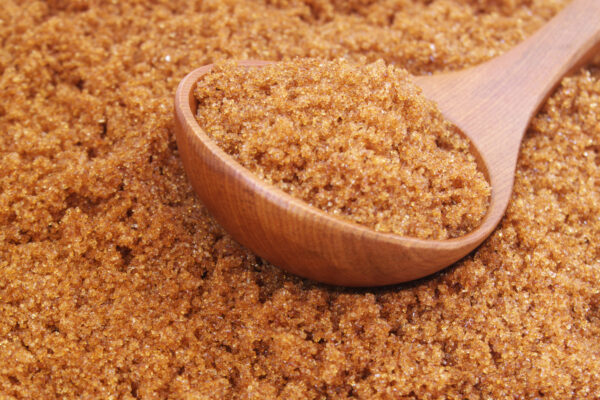
The Bottom Line
Artificial sugars aren't all good or all bad—they're tools. They can help you reduce sugar intake, but they can also impact your gut, cravings, and metabolic signals if overused. Understanding the difference between zero sugar, no sugar, and unsweetened empowers you to make choices aligned with your wellness goals.
A nature-rooted lifestyle doesn't require perfection—it simply invites you to stay curious, informed, and connected to what helps your body feel its best.

